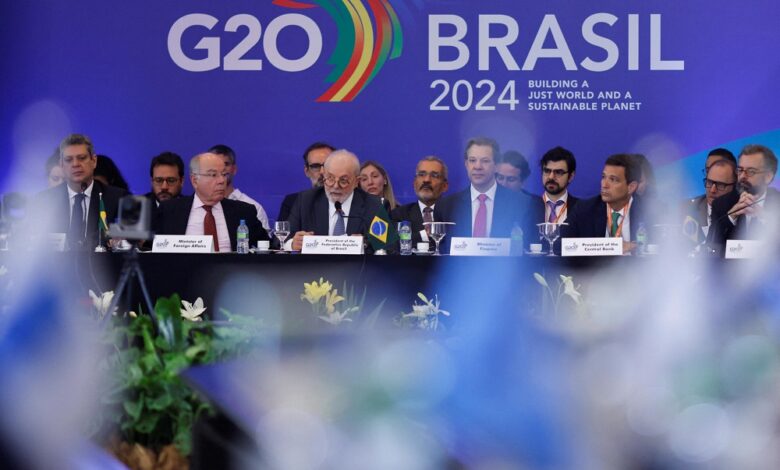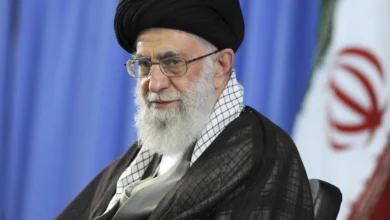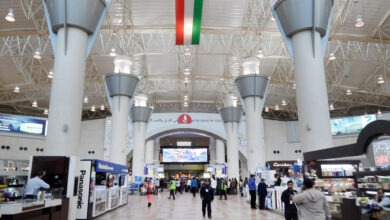
By Kevin Watkins
Special to The Times Kuwait
The G20 is an unlikely champion of social justice. Financial Times journalist Alan Beattie, underscoring the group’s lack of clear direction, once likened it to a “pantomime horse manned by a troupe of clowns.” But Brazil’s presidency offers an opportunity to change this perception.
With Brazilian President Luiz Inácio Lula da Silva at the helm, the G20 is poised to become the launchpad for a landmark initiative to tackle hunger, poverty, and extreme inequality. The Global Alliance against Hunger and Poverty, which will be launched in November, aims to turn the tide in what has so far been a losing battle to achieve the United Nations Sustainable Development Goals (SDGs).
Partly modeled on Brazil’s own ‘zero hunger’ campaign, perhaps the biggest human development success story of the twenty-first century, the Alliance aims to mobilize the financing and leadership needed to support the achievement of the SDGs. More than 100 countries have signaled their intention to join. But will it make a difference?
Founded in 1999, the G20 was conceived as a forum for industrialized and developing countries to discuss and coordinate policies to ensure financial stability, bridging the Global North-South divide. The grouping has plenty of political and economic muscle: its members account for more than 80% of the world’s economic output and two-thirds of its population. What has been missing is a sense of strategic direction and shared purpose. The group reached the zenith of its influence in 2009, when then-UK Prime Minister Gordon Brown used its leaders’ summit to broker a massive financial deal that staved off a global recession. Since then, it has steadily slid into irrelevance.
The G20’s ever-expanding agenda is part of the problem. Beyond finance and banking, the group’s dialogue now spans everything from artificial intelligence to cryptocurrencies, the wars in Gaza and Ukraine, climate change, and the SDGs. Yet it is hard to identify a single area in which the G20 has made a tangible difference. Its preferred currency is not actionable plans backed by political leadership, but anodyne communiqués that paper over political differences.
Brazil is now challenging this inertia. Even before assuming the G20 presidency, Lula announced the creation of a task force to develop innovative financing mechanisms through which the group could support underfunded national poverty-reduction programs. Adroitly led by Brazilian officials, the resulting dialogue has spawned the Alliance.
Few countries are better equipped to lead a concerted drive to combat hunger than Brazil. During his first presidency from 2003 to 2010, Lula launched a massive campaign to eradicate poverty and hunger in Brazil, which included the Bolsa Família cash-transfer program, policies to support smallholder agriculture, a higher minimum wage, and investment in basic health care. A national school program provided more than 40 million children with nutritious meals. Critically, the National Council for Food Security provided coordinated leadership, cutting across ministerial siloes and facilitating public participation.
Over the decade following the launch of the ‘zero-hunger’ campaign, economic growth and redistributive government policies enabled nearly 30 million Brazilians to escape poverty. As the number of undernourished Brazilians fell from 19 million to three million, the Food and Agriculture Organization of the UN removed Brazil from its ‘world hunger map’.
Unfortunately, the gains were short-lived. Hunger and poverty increased dramatically as Jair Bolsonaro’s right-wing administration cut social programs. But the pendulum has now swung in the other direction. Shortly after taking office again in January 2023, Lula’s new government launched its Brazil Without Hunger initiative, an ambitious effort to eradicate severe food insecurity within four years.
A similar level of ambition is now needed to achieve the SDGs. If current trends continue, around 600 million people will live in extreme poverty by the end of the decade – more than double the UN’s target. Progress toward the eradication of hunger has gone into reverse. UN Secretary-General António Guterres has warned that without urgent action, the SDG agenda “will become an epitaph for a world that might have been.”
The G20’s Global Alliance against Hunger and Poverty could avert this outcome. In a recent report to the G20 presidency that I co-authored with Kathryn Nwajiaku-Dahou and Hetty Kovach, we outline strategies that could help replicate Lula’s success in Brazil on a global scale.
As a first step, the G20 could throw its weight behind efforts to increase international development financing for reducing hunger and poverty. We estimate current financing at just $75 billion annually. Instead of endlessly debating the SDGs, the G20 could put in place reforms, recommended by its own special expert group, that would boost concessional lending by $180 billion by using the multilateral development bank system more effectively.
Debt relief is another priority. More than $80 billion this year will flow out of poorer developing countries in debt-service payments, much of it directed to commercial creditors. These payments are crowding out spending on health, nutrition, and education. The G20’s current debt initiative has failed to tackle the issue head-on, but the organization could play a role in converting unpayable debts into investments in people.
Despite today’s extreme polarization, combating undernutrition provides the G20 with a unifying cause, and a practical policy option. Consider, for example, child malnutrition. Over one-third of children in low- and lower-middle-income countries are living with hunger. Providing these children with nutritious school meals would help reduce malnutrition, alleviate poverty, and enhance learning. A global aid commitment of about $1.5 billion could support national efforts that would extend the reach of school meals to hundreds of millions more children, replacing hunger with hope.
But inadequate financing is only part of the problem. As our report shows, the aid delivery architecture is fragmented, inefficient, and hopelessly outmoded. Too much aid is delivered through projects and uncoordinated multilateral funds that prioritize donor agendas – and donor control – over practical needs. By pooling resources and establishing clearly defined antipoverty and hunger-reduction goals, G20 countries could increase efficiency, reduce transaction costs, and strengthen national ownership.
In a 2006 address to the UN, Lula remarked, “If with so little we have done so much in Brazil, imagine what could have been done on a global scale if the fight against hunger and poverty were a real priority for the international community.” The Global Alliance against Hunger and Poverty offers the G20 an opportunity to go beyond imagining a better future and help create one.

Kevin Watkins
A former CEO of Save the Children UK, is a visiting professor at the Firoz Lalji Institute for Africa at the London School of Economics.
Copyright: Project Syndicate, 2024.
www.project-syndicate.org













